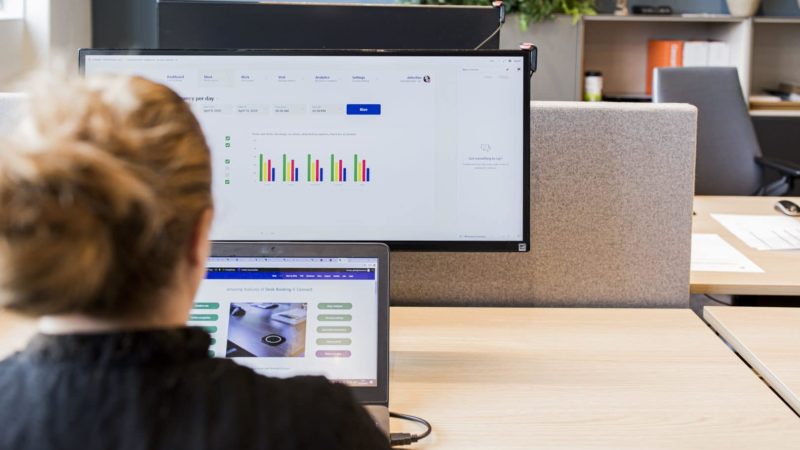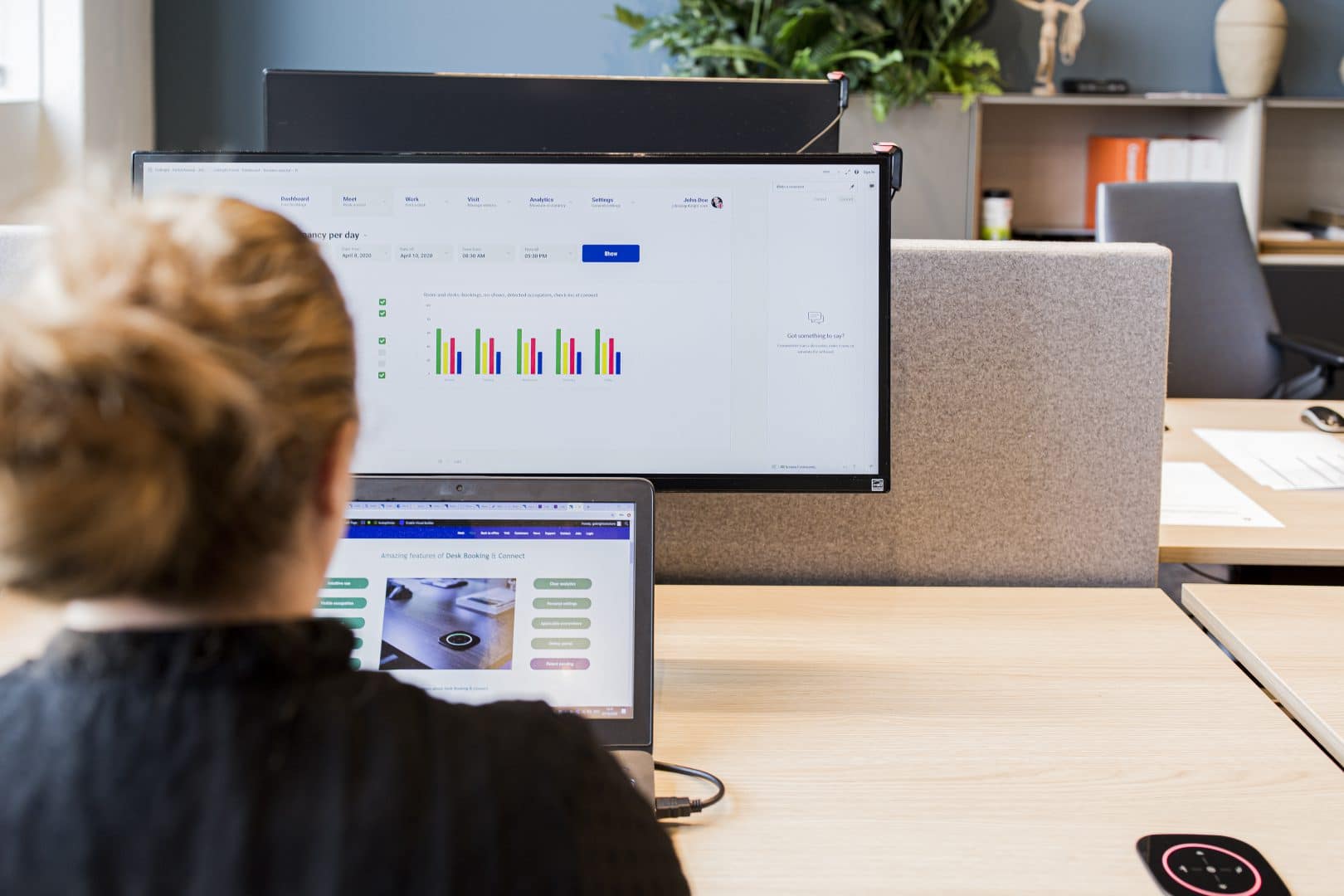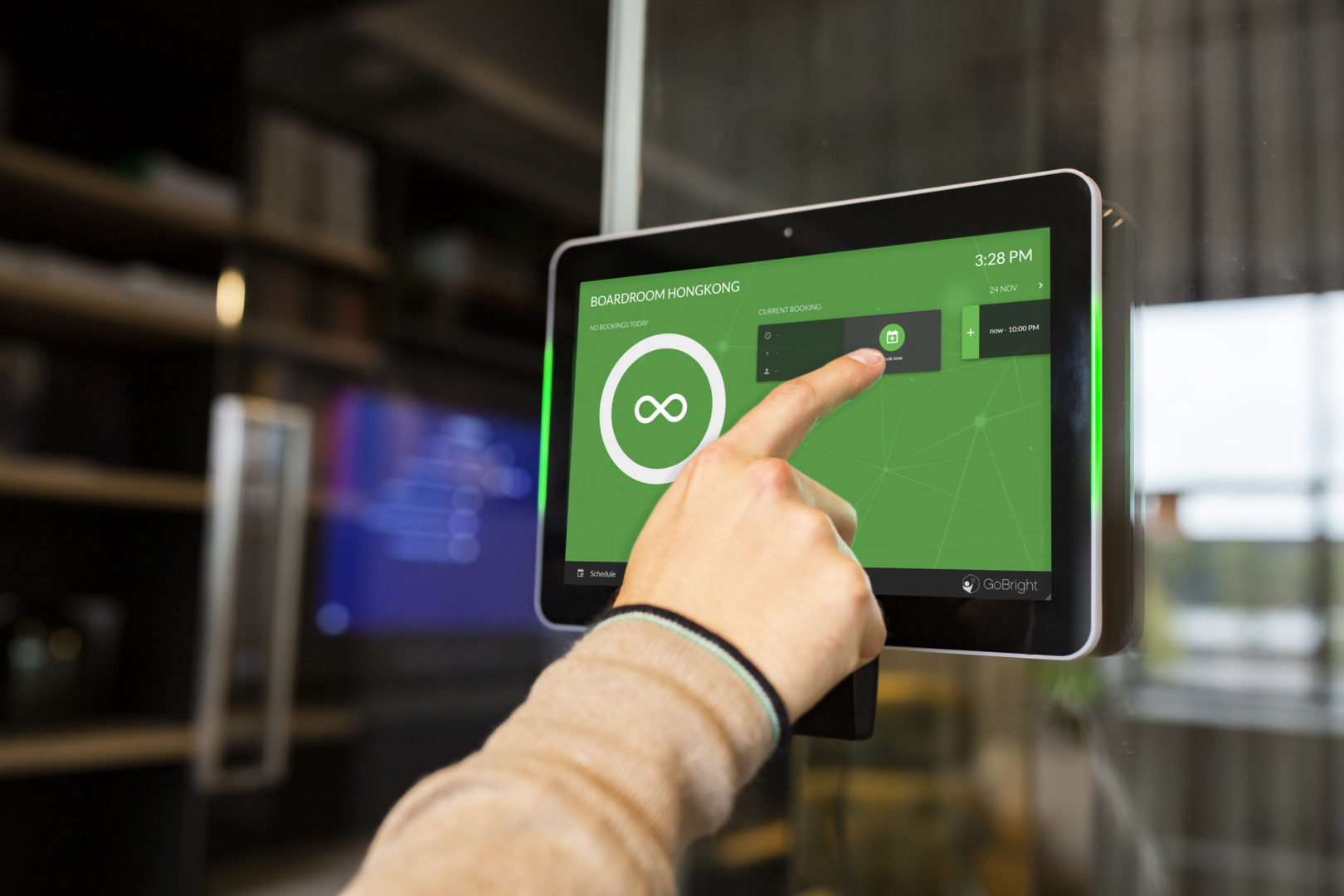
A successful future workplace must be data driven
The modern workplace is evolving. It’s increasingly important for leaders to create an environment that enables agile processes and flexible working. In 2020, Knight Frank’s ‘Re-occupancy and Re-imagined Workplace Survey’ found that 47% of UK businesses believed their real estate strategies would include more serviced or coworking space in future.
Leaders are being challenged to evaluate the tasks people do and the most effective environment for those tasks and determine changes needed in the physical environment and workplace culture. Another study commissioned by Forrester Consulting on behalf of Elastic suggests that the companies that adapt quickly to new ways of working will perform better than those that don’t. Smart use of data to increase productivity and optimise space utilisation will yield a positive return on investment and increase the gap between the leaders and followers.
Over the last year, organisations have adjusted to accommodate a remote workforce and now as they plan for a return to the office, the likelihood is that most will be considering a blend of onsite and remote working. Gone are the days of employees turning up to the office each day to work at their own desk.
Organisations previously dedicated vast amounts of office space to individual desks and filing cabinets and squeezed in some limited collaboration space. The pandemic has provided the catalyst for businesses to think differently about providing the right space for the work whilst helping employees to achieve the right work/life balance. But how can organisations know what approach is right for them?
Data Driven Decisions
Data analytics is key. The insights gained from this can inform a workplace strategy that optimises use of space. According to a Gensler research study, 83% of corporate real estate executives rank space utilisation as the most important metric for making effective workplace decisions. The return on investment that can be achieved by getting these things right can and does affect an organisation’s ability to achieve cost-effective growth.

In the short-term, organisations need to track data to understand their own performance trends, for example the employees and departments accessing the office most frequently and the meeting rooms used most regularly. This data informs short-term decision making to ensure workplace effectiveness, employee wellbeing and adherence to safety requirements.
However, we’re increasingly seeing organisations using data to determine longer term plans. As organisations gather and utilise data more effectively, it can inform development of an occupancy strategy which helps organisations to build an environment to support a highly productive workforce and better manage the cost of real estate. Workplace management solutions like GoBright offer a passive method of data collection across the workplace to guide strategic business decisions, using 3 key elements.
Desk booking
Introducing desk booking can provide employees that have been working from home, with reassurance about the prospect of returning to the office. They are able to select a desk in a workspace located close to colleagues with whom they need to collaborate.

Desk Sensors further improve accuracy and predictability by enabling businesses to track people checking in and out automatically, without the need for additional hardware. In the short-term desk booking data is about controlling and managing occupancy, but in the long term the data gathered will enable businesses to plan accurately for future workplace needs. For example, as workspace demand changes there may be a requirement for fewer desks and more meeting spaces.
Room booking
Room booking data helps organisations to understand the number of rooms being used, the size of room most commonly selected and typical occupancy levels. When building a hub for the future it’s important to know the number and sizes of meeting spaces likely to be required.
Collecting data can also help determine the type of technology users are most likely to need for their meetings and the services they most frequently book. Issues and incidents can also be logged to enable organisations to improve incident management by monitoring and quickly resolving common technical issues.
Visitor management

Visitor Management Solutions (VMS) in the short-term hold the key to implementing a successful track and trace policy. Organisations can monitor the number of visitors in their buildings in real time seeing exactly what times people are checking in and out and providing them with important safety information while they are onsite. Visitor levels can also be monitored over time, enabling organisations to identify which staff most frequently host visitors, the reasons for the visits and the most popular days for those visits.
Additionally, VMS takes away a lot of the ‘heavy lifting’ that traditionally would be placed on a receptionist. Tasks like contacting the host when the visitor arrives or having to type in all of the visitor details manually are taken care of digitally allowing the receptionist to focus on providing a hospitality experience.
Conclusion
Ultimately the key to success for an organisation is its ability to optimise the use of space. This means creating an environment that supports a high performing workforce by delivering workplace solutions that align to the working practices of their employees. It also requires effective use of data to ensure they’re making the most effective use of the space they have now and to enable them model future scenarios in line with emerging business needs and changes in workplace behaviours.
Sources:
GoBright: https://ascentae.com/products/gobright/
Knight Frank, Re-occupancy and Re-imagined Workplace Survey, 2020: https://www.knightfrank.co.uk/office-space/insights/culture-and-space/6-things-uk-businesses-want-from-office-space
Forrester Consulting, The Changing Role of the IT Leader 2021: https://www.elastic.co/fr/campaigns/forrester-covid-19-it-leader-employee-experience
Gensler research: https://www.gensler.com/gri